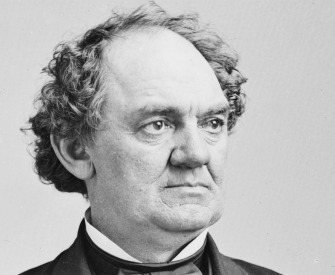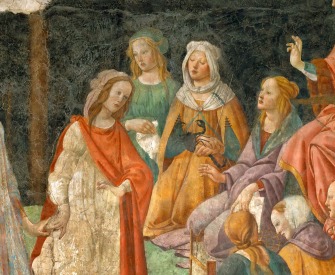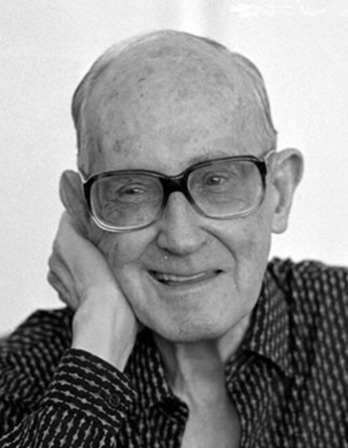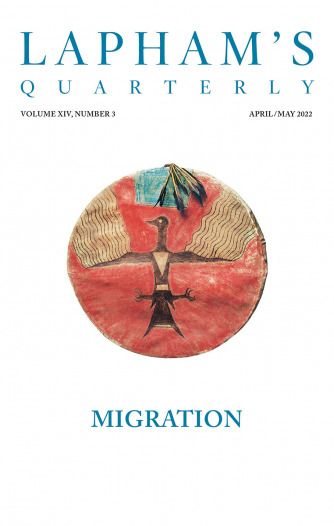Suppose any person to be put in possession of a large estate of fruitful land, with rich beds of gold in its gravel; countless herds of cattle in its pastures; houses, and gardens, and storehouses full of useful stores; but suppose, after all, that he could get no servants?
In order that he may be able to have servants, someone in his neighborhood must be poor and in want of his gold—or his corn. Assume that no one is in want of either, and that no servants are to be had. He must, therefore, bake his own bread, make his own clothes, plough his own ground, and shepherd his own flocks. His gold will be as useful to him as any other yellow pebbles on his estate. His stores must rot, for he cannot consume them. He can eat no more than another man could eat, and wear no more than another man could wear. He must lead a life of severe and common labor to procure even ordinary comforts; he will be ultimately unable to keep either houses in repair, or fields in cultivation; and forced to content himself with a poor man’s portion of cottage and garden, in the midst of a desert of wasteland, trampled by wild cattle, and encumbered by ruins of palaces, which he will hardly mock at himself by calling “his own.”
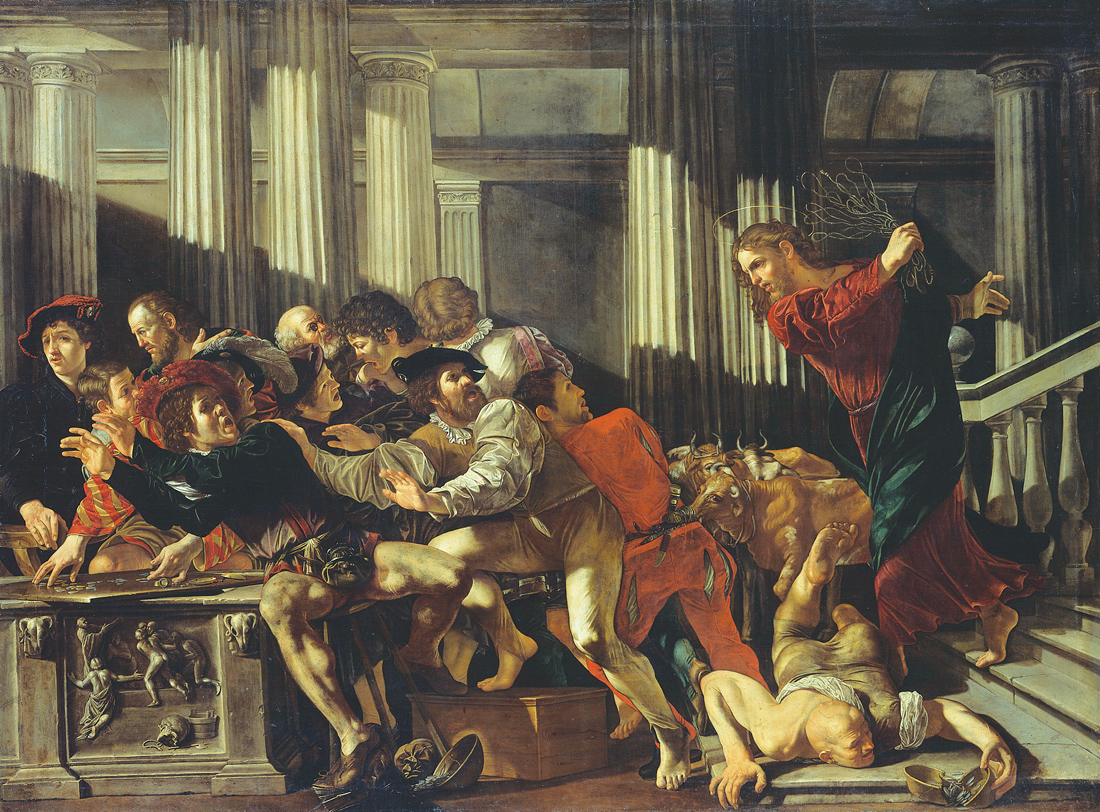
Christ Driving the Money-lenders Out of the Temple, by Francesco Boneri, c. 1610. Gemäldegalerie, Berlin, Germany.
The most covetous of mankind would, with small exultation, I presume, accept riches of this kind on these terms. What is really desired under the name of riches is, essentially, power over men; in its simplest sense, the power of obtaining for our own advantage the labor of servant, tradesman, and artist; in wider sense, authority of directing large masses of the nation to various ends (good, trivial, or hurtful, according to the mind of the rich person). And this power of wealth of course is greater or less in direct proportion to the poverty of the men over whom it is exercised, and in inverse proportion to the number of persons who are as rich as ourselves, and who are ready to give the same price for an article of which the supply is limited. If the musician is poor, he will sing for small pay, as long as there is only one person who can pay him; but if there be two or three, he will sing for the one who offers him most. And thus the power of the riches of the patron (always imperfect and doubtful, as we shall see presently, even when most authoritative) depends first on the poverty of the artist, and then on the limitation of the number of equally wealthy persons who also want seats at the concert. So that, as above stated, the art of becoming “rich,” in the common sense, is not absolutely nor finally the art of accumulating much money for ourselves, but also of contriving that our neighbors shall have less.
From “The Veins of Wealth.” Ruskin’s fame as an unorthodox art critic in Victorian England rested on his disdain for the Old Masters. The large fortune that had come to him by inheritance he gave away with the declaration that wealth and socialism are incompatible.
Back to Issue


